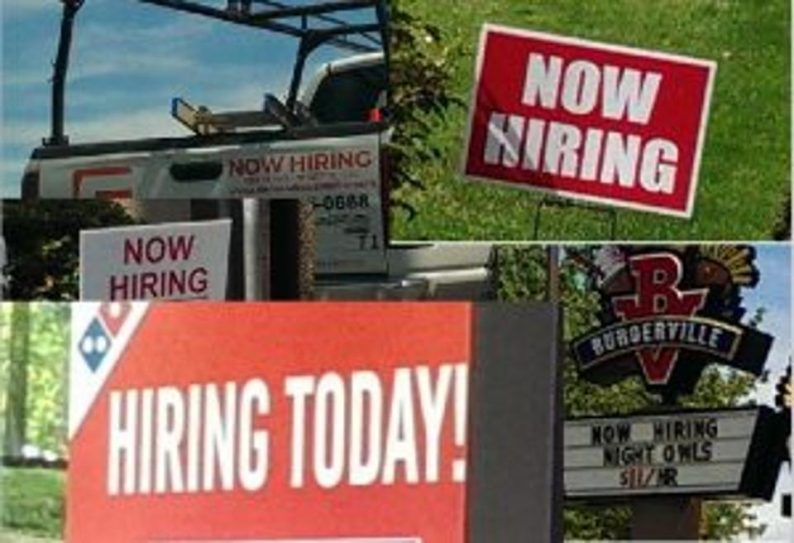
Bill Conerly
Help Wanted signs found on a quarter-mile stretch of road in Tigard, OR.
The labor market is tight right now, and this is the biggest challenge business leaders face today. And I’ve got bad news for you: It’s not going to get better anytime soon.
I’m not just looking at statistics. As I go around the country speaking about the economy and labor markets, I’m also listening to business leaders as well as managers of non-profits and government agencies. They are telling me that hiring is hard and turnover is high. In later articles, I’ll explain the proven techniques for better retention and recruiting. Here, I focus on an important point: This is a problem you’ll be living with for years.
The short-term cause has been economic growth, with net job growth averaging 170,000 positions per month. But that headline report adds new jobs and subtracts quits, layoffs, retirements and other separations. The gross rate at which people are quitting is now three million people per month, twice what it was in the recession. And companies are trying to hire, both to replace quits and retirements and also the expand. Six million open positions show up in the official reports, and businesses would certainly hire even more if people were available. But this recent economic growth is not the whole story. The tight job market will continue for a decade or more.
In the coming years, our working age population will grow more slowly than it has decades past. Part of the issue is total population growth. Because of declining migration to the United States from other countries, our total population growth rate is the lowest it has been a since 1937.
But that’s only part of the problem. The baby boomers are starting to retire, but it’s a little later than many people realize. The birth rate was high throughout the 1960s and early seventies, with the peak in 1957. As I record this video in 2017, the median baby boomer is 60 years old. The boomer generation has begun to retire, but there are millions more retirements coming in the next 10 years. Even if your company does not have lots of boomers retiring, you will be competing for new hires with companies that are really desperate.









Leave A Comment